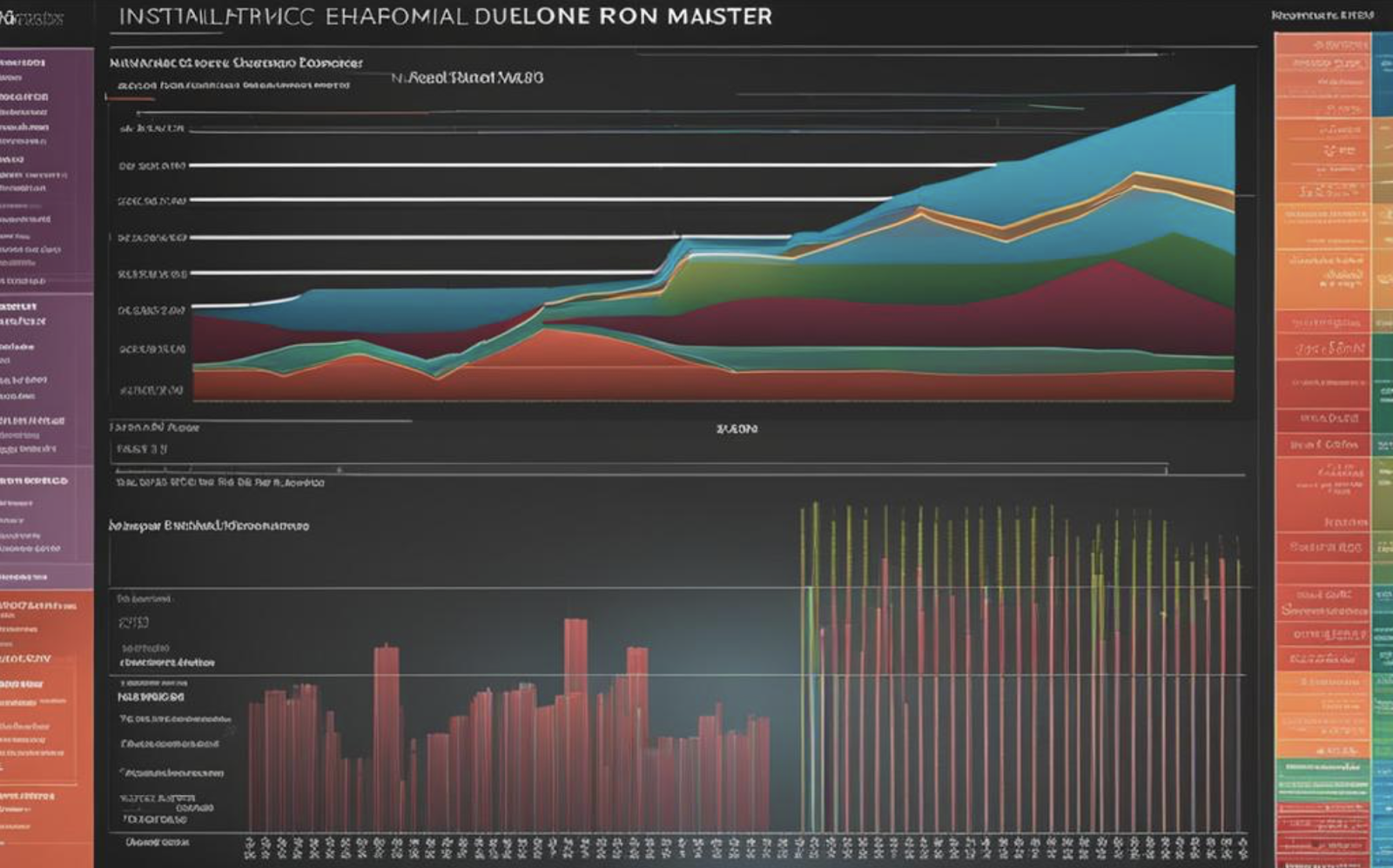The field of health informatics is experiencing rapid growth due to advancements in technology and data management in the healthcare industry.
The demand for qualified professionals in this field is outpacing the number of available applicants. According to the U.S. Bureau of Labor Statistics, health informatics job growth is projected to be 32% in the coming years, much faster than the average for other occupations.
This growth includes roles such as medical and health services managers, including health IT managers responsible for managing patient records and complex data. The salary range for health informatics professionals is high, with the median average salary being $104,280. However, salaries can vary based on location and job responsibilities.
Key Takeaways
- Highest paying health informatics jobs
- Salary in health informatics
- Top paying healthcare IT careers
- High paying health information management positions
Health Informatics Job Opportunities
The field of health informatics offers a wide range of job opportunities across various sectors of the healthcare industry. These opportunities span from public health and nursing to biotech and insurance. Health informatics professionals are in high demand, and there is a significant number of job listings in this field. Platforms such as LinkedIn provide access to thousands of job listings specifically related to health informatics.
Health informatics professionals play a crucial role in integrating and managing health data, improving the quality of care, and analyzing health trends. They work closely with healthcare providers, technology vendors, and government agencies to ensure smooth operations and effective use of health information systems.
To find available jobs in health informatics, professionals can explore websites such as AHIMA and HIMSS, which provide comprehensive resources and job listings specifically tailored to this field. These platforms offer a wide range of job opportunities suitable for individuals at different stages of their careers, from entry-level positions to top paying healthcare IT careers.
Working in health informatics offers a rewarding career path with promising job prospects. The demand for skilled professionals in this field is expected to continue growing as the healthcare industry increasingly relies on data-driven decision-making and the utilization of technology to enhance patient care outcomes.

Salaries in Health Informatics
The field of health informatics offers a wide range of career opportunities, and salaries can vary greatly depending on various factors such as location, job title, and level of experience. According to the Bureau of Labor Statistics, the median average salary for health informatics professionals is $104,280. However, individual salaries can be higher or lower based on unique circumstances.
For instance, ZipRecruiter provides salary estimates for specific health informatics jobs, revealing median annual salaries of $109,578 for clinical informatics specialists and $102,230 for informatics nurses. These figures demonstrate some of the highest earning opportunities in healthcare IT.
Salaries in health informatics can also be influenced by geographic location and the specific job market in a given area. Areas with a higher cost of living or a greater demand for health informatics professionals may offer higher salaries. On the other hand, areas with a lower demand or lower cost of living may have lower salary ranges.
In summary, salaries in health informatics can vary widely depending on location, job title, and level of experience. It's essential for professionals in this field to consider these factors when evaluating potential job opportunities and negotiating their salary.
Required Education and Training in Health Informatics
Health informatics professionals play a crucial role in managing and analyzing healthcare data, and as such, they are often required to have a solid educational foundation in the field. While the specific educational requirements can vary depending on the job and employer, many positions in health informatics require at least a bachelor's degree.
Obtaining a bachelor's degree in health informatics provides students with the fundamental knowledge and skills needed to navigate the complex realm of healthcare data management and analysis. Students enrolled in these programs typically study core subjects such as health information systems, medical coding, healthcare data analytics, and healthcare regulations.
Pursuing a master's degree in health informatics or a related discipline may be advantageous for those aspiring to hold leadership positions, or to attain the highest compensated roles in health information technology. These advanced programs delve deeper into topics such as healthcare data security, health information exchange, data governance, and strategic planning in healthcare informatics.
Additionally, there are associate degree programs available for individuals who want to kickstart their career in health informatics. These programs provide a solid foundation in healthcare information management and typically cover topics such as health data management, healthcare statistics, and health informatics fundamentals. While an associate degree may qualify individuals for certain entry-level positions, more advanced roles often require further education.
It's worth noting that beyond formal degrees, specialized certifications and training programs are available to enhance skills and knowledge in health informatics. These certifications provide additional credibility and demonstrate expertise in specific areas of health informatics, such as electronic health records (EHR) or healthcare data analytics.
To further illustrate the importance of education in health informatics, according to a survey by the American Health Information Management Association (AHIMA), 85% of health informatics professionals reported holding a bachelor's degree or higher, with 61% holding a master's degree or higher.
Ultimately, pursuing education and training in health informatics equips individuals with the necessary knowledge and skills to excel in this fast-growing field, opens up greater job opportunities, and allows professionals to make a lasting impact on the future of healthcare.

Career Paths in Health Informatics
The field of health informatics offers various career paths and job roles for professionals looking to make an impact in the healthcare industry. These career paths provide opportunities to work with cutting-edge technology and data systems to improve patient care and healthcare outcomes.
Some common job roles in health informatics include:
- Health Informatics Director: In this role, professionals are responsible for overseeing the implementation and management of health information systems within healthcare organizations. They provide strategic direction and leadership in utilizing technology to optimize healthcare processes and improve patient outcomes.
- Informatics Nurse: Informatics nurses combine their clinical expertise with their knowledge of health informatics to enhance patient care and streamline workflows. They work closely with healthcare teams, translating complex data into actionable insights and assisting in the implementation of electronic health record systems.
- Clinical Analyst: Clinical analysts are responsible for analyzing healthcare data to identify trends, patterns, and areas for improvement. They collaborate with healthcare professionals to develop solutions that optimize patient care and enhance healthcare processes.
- Clinical Informatics Specialist: In this role, specialists focus on integrating and managing clinical data and information systems. They work with healthcare providers and technology teams to ensure accurate and secure data collection, storage, and retrieval for patient care and research purposes.
- Health Informatics Consultant: Consultants in this field provide expert advice and guidance to healthcare organizations on implementing and optimizing health informatics solutions. They assess current systems, recommend improvements, and assist in the development of strategies that leverage technology to achieve organizational goals.
Leadership Roles in Health Informatics
Health informatics also offers opportunities for professionals to take on leadership roles, playing a crucial role in shaping the future of healthcare delivery and technology integration.
Some leadership positions in health informatics include:
- Informatics Director: Informatics directors provide strategic leadership and direction to health informatics teams within healthcare organizations. They oversee the development and implementation of data management systems, policies, and procedures.
- Informatics Manager: Informatics managers are responsible for managing a team of health informatics professionals and collaborating with other departments to ensure efficient and effective use of technology and data in healthcare processes.
- Chief Information Officer: As the highest-ranking executive in health informatics, the Chief Information Officer (CIO) is responsible for aligning technology strategy with the overall organizational goals. They develop and implement policies and procedures related to health information systems and ensure data security and privacy.
These leadership roles provide professionals with an opportunity to make a significant impact on the healthcare industry by driving innovation, improving patient outcomes, and advancing the use of technology in healthcare delivery.
To illustrate the diverse career paths in health informatics, here is an infographic highlighting some of the key job roles and specialties:
As the field of health informatics continues to evolve, new job roles and specialties may emerge, providing even more exciting opportunities for professionals in this dynamic industry.
Factors Influencing Salaries in Health Informatics
When it comes to determining salaries in the field of health informatics, several factors come into play. Understanding these factors can provide valuable insight into the salary variations in this rapidly growing industry.
Location
One of the key factors influencing health informatics salaries is the geographical location of the job. Salaries can vary significantly based on the cost of living and the demand for health informatics professionals in a particular area. For example, cities with a higher cost of living may offer higher salaries to attract and retain qualified individuals.
Education and Experience
The level of education and experience also play a crucial role in determining salaries in health informatics. Having a higher degree, such as a master's or doctoral degree, can open doors to more advanced and higher-paying positions. Similarly, professionals with several years of experience in the field often have higher earning potential compared to entry-level candidates.
Specializations
Specializing in a specific area of health informatics, such as nursing informatics or pharmacy informatics, can also impact salaries. These specialized roles require additional knowledge and expertise, which are often rewarded with higher compensation. Professionals who possess unique skills and certifications in a specific health informatics subfield may have a competitive edge in terms of salary negotiations.
Leadership Positions
Leadership positions in health informatics, such as managers or directors, tend to have higher salaries compared to entry-level positions. These roles often come with increased responsibilities and require strong leadership skills and strategic decision-making abilities. As a result, professionals in leadership positions can expect higher compensation to reflect their expertise and contributions to the organization.
Understanding the factors that influence salaries in health informatics can help professionals navigate their career paths and make informed decisions. By considering location, education, specialization, and leadership opportunities, individuals can strategize their career progression and maximize their earning potential in this rapidly growing field.

Growing Demand for Health Informatics Professionals
The field of health informatics is experiencing a surge in job opportunities and employment prospects due to the growing demand for professionals skilled in data analytics and digital technologies in healthcare.
In today's data-driven healthcare industry, health informatics plays a crucial role in enabling effective decision-making and optimizing healthcare outcomes. As a result, there is an increasing need for experts who can effectively manage and analyze healthcare data.
"The demand for health informatics professionals is expected to continue to grow as the industry recognizes the value of harnessing data for improving patient care and operational efficiency." - Healthcare Industry Expert
According to the Bureau of Labor Statistics, the job outlook for healthcare occupations is projected to grow by 13% in the coming years. Additionally, operations research analyst positions, which include data analytics roles in healthcare, are expected to see a 23% growth.
This strong job growth indicates a promising future for health informatics careers. Professionals in this field can expect to find ample opportunities in healthcare organizations, research institutions, governmental agencies, and technology companies.
As the healthcare industry continues to evolve and become more reliant on data-driven solutions, the demand for health informatics professionals is likely to grow exponentially. This growth presents an optimal time for individuals interested in health informatics to pursue a career in this field.
Conclusion
Health informatics offers lucrative career opportunities in the growing field of healthcare IT. Salaries in health informatics can vary widely based on location, job title, and level of experience. The field is experiencing rapid growth, with increasing job opportunities and a positive job outlook. The demand for qualified professionals in health informatics is expected to continue to grow as data becomes increasingly important in optimizing healthcare outcomes. Pursuing education and training in health informatics can provide individuals with the skills and knowledge needed to succeed in this high-demand field.
With the rapid advancement of technology and increasing reliance on data in the healthcare industry, health informatics has become a critical discipline. Professionals in this field play a crucial role in managing and analyzing healthcare data, improving patient care, and driving innovation in healthcare systems. The high demand for health informatics professionals is reflected in the variety of job opportunities available across different sectors of the industry.
Salaries in health informatics can vary depending on factors such as location, job title, and experience. However, the median average salary of $104,280 indicates the potential for high earning in this field. By acquiring the necessary education, training, and certifications, individuals can position themselves for rewarding careers in health informatics. With the projected growth in the field and the increasing need for data-driven decision-making in healthcare, the future looks promising for those interested in pursuing a career in health informatics.
In conclusion, health informatics offers a wealth of opportunities for professionals seeking a rewarding career at the intersection of healthcare and technology. With competitive salaries, a positive job outlook, and the potential to make a significant impact on improving healthcare outcomes, health informatics is a field worth exploring for individuals passionate about leveraging data and technology to transform healthcare systems.
FAQ
What education and training is required for a career in health IT?
There are associate degree programs available for individuals who want to kickstart their career in health informatics. This is a good starting point if you want to test the waters. A bachelor's degree or a master's degree in health informatics or a related discipline may be advantageous for those looking to move up to top positions. Beyond formal degrees, specialized certifications and training programs are available to enhance skills and knowledge and provide additional credibility and expertise.
What is the salary range in health informatics?
According to the US Bureau of Labor Statistics, the median annual income of a health informatics professional is $104,280. The salary range in health informatics can vary based on factors such as location, job title, and level of experience.
What are some well-paying health informatics job positions?
Some of the top paying healthcare IT careers include medical and health services managers, health IT managers, and clinical informatics specialists.
What are some of the leadership roles and highest paying health informatics jobs?
The best paying health informatics jobs are usually leadership roles including informatics director, informatics manager, and chief information officers.